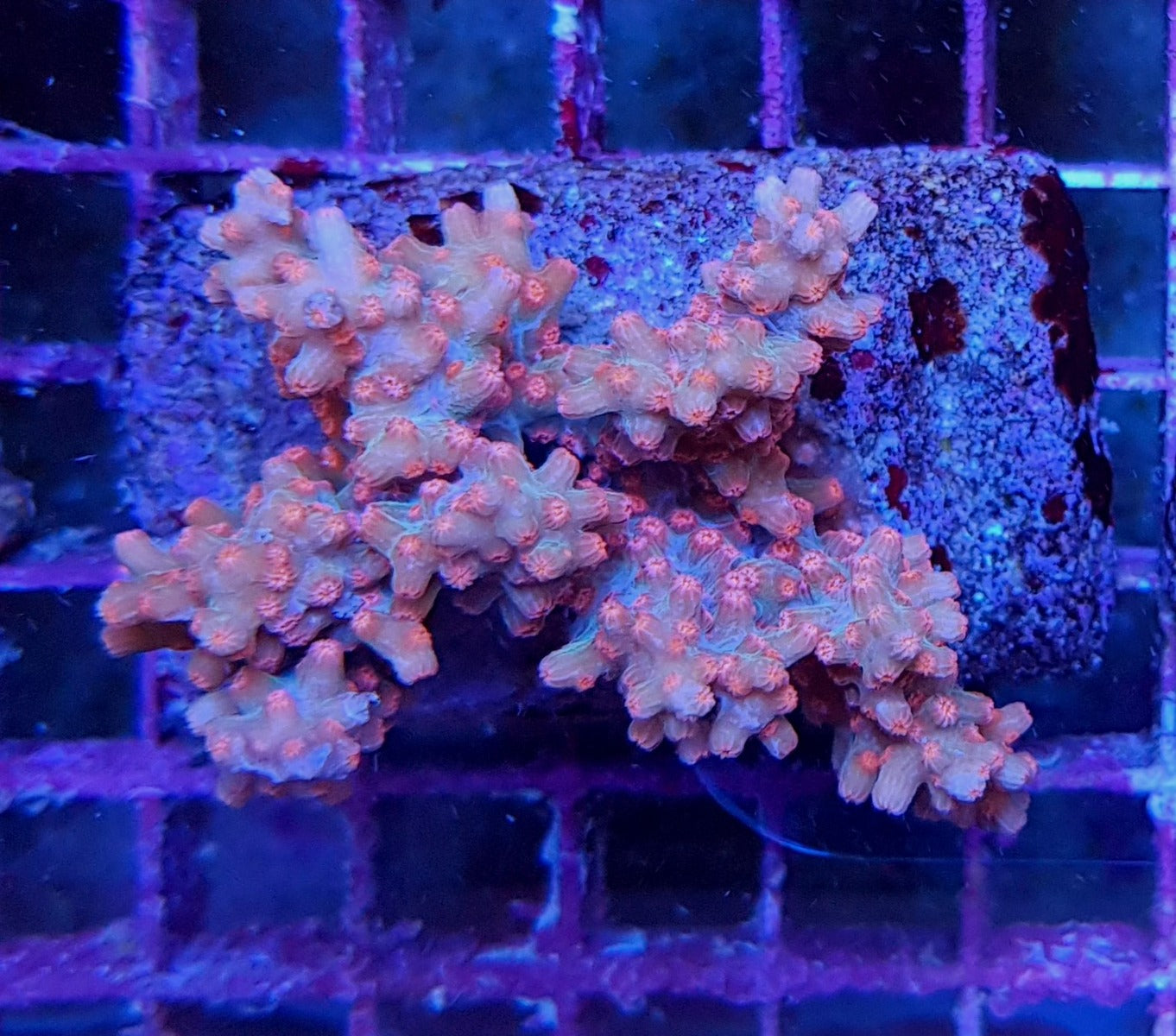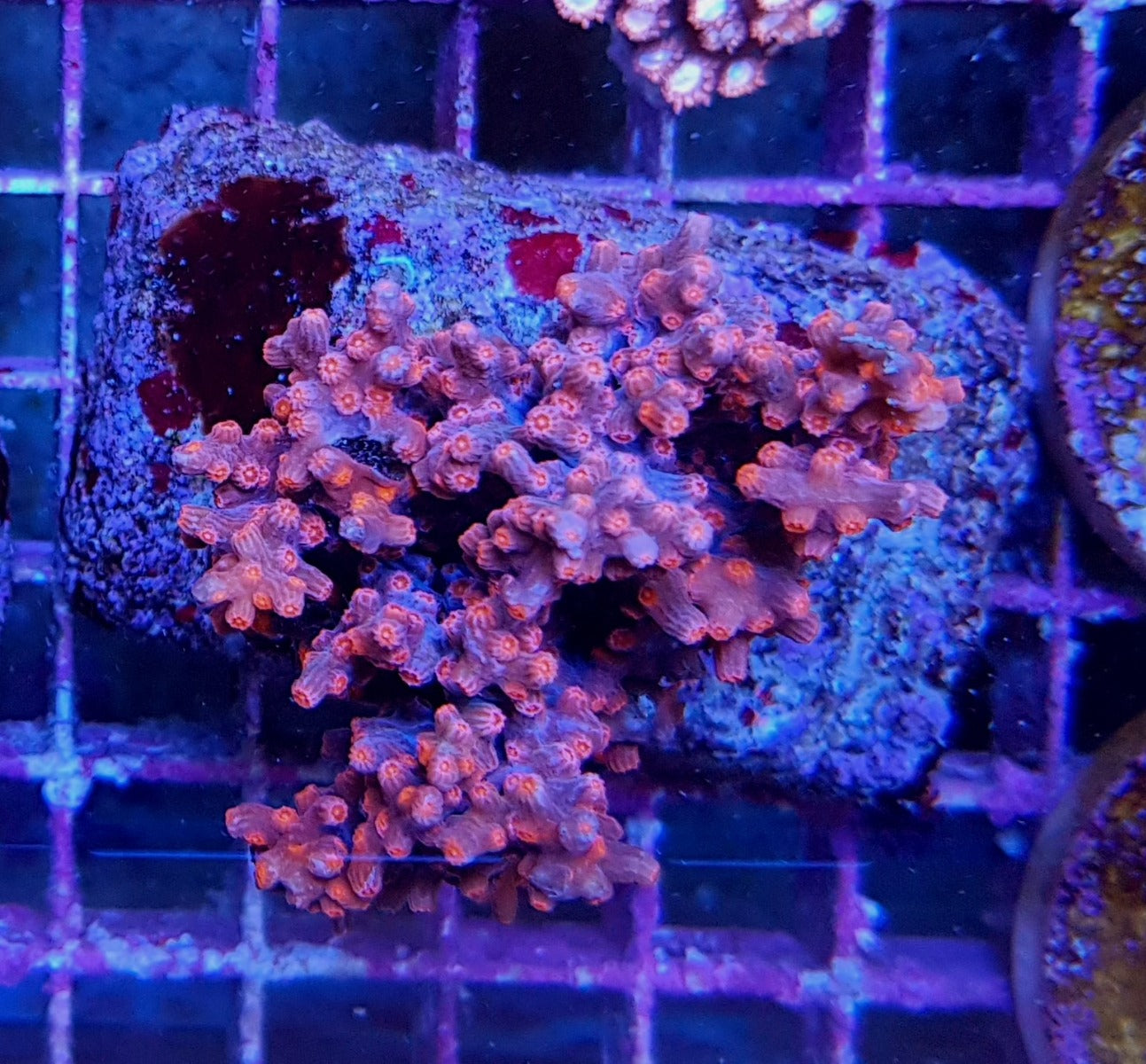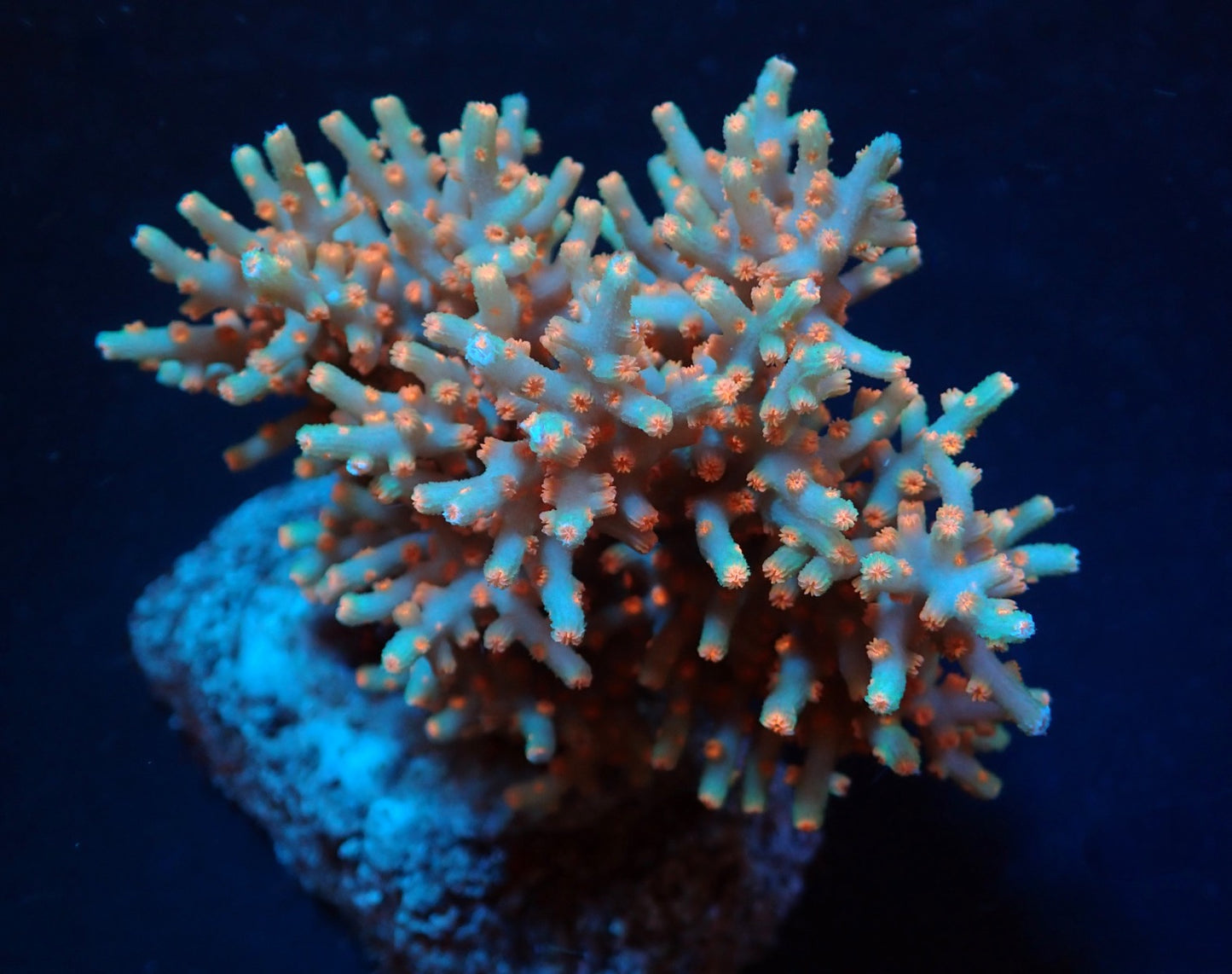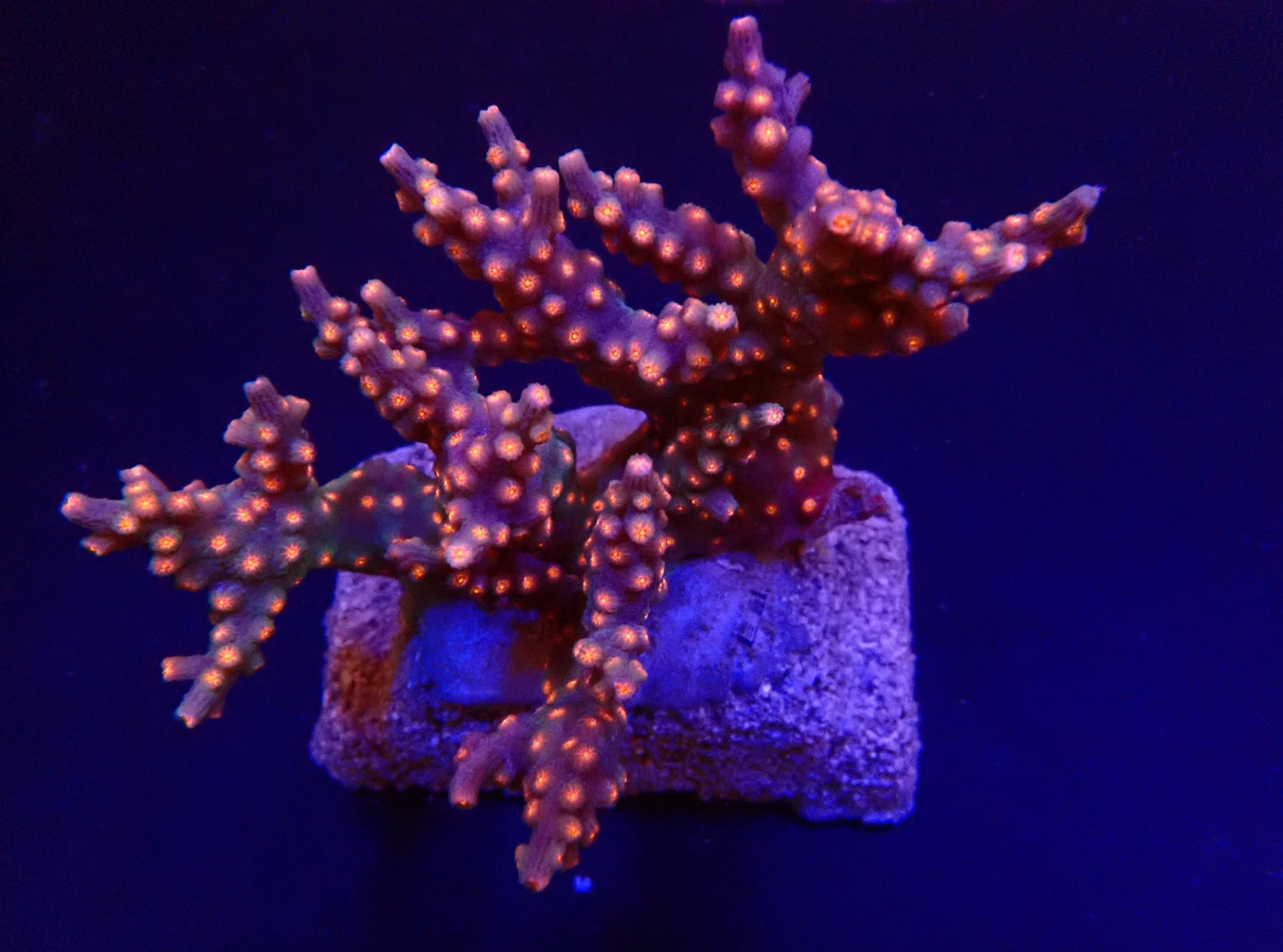Coralreef Store
Cyphastrea decadia
Cyphastrea decadia
Couldn't load pickup availability
- Indo-Pacific
- Moderate Care Level
- For Intermediate Hobbyists
- Moderate Placement in Reef Tank
Cyphastrea decadia is a species of encrusting or plating small polyp stony (SPS) coral found in the Indo-Pacific region. This coral is renowned for its vibrant colors and unique growth pattern, which features tightly packed, compact corallites arranged in a honeycomb-like structure. The species typically exhibits hues of green, blue, orange, and purple, often with fluorescent accents under actinic lighting. Known for its slow growth rate, Cyphastrea decadia is best suited for intermediate hobbyists with experience in maintaining stable aquarium conditions.
Placement in the Tank
Cyphastrea decadia prefers moderate to high lighting and moderate water flow. It is best placed in the middle to upper sections of the reef tank, where it will receive plenty of light. While it can tolerate a variety of light conditions, too much light intensity may stress the coral, potentially leading to bleaching, especially under intense LED lighting. A light intensity between 150-300 PAR is ideal for optimal growth.
Water flow should be moderate to strong, as this species benefits from good water movement to keep debris off its surface and improve its feeding efficiency. Avoid placing it in areas with stagnant water, as this can hinder its overall health.
Water Parameters
Maintaining optimal water conditions is essential for Cyphastrea decadia to thrive. The recommended water parameters are:
- Temperature: 24°C to 28°C (75°F to 82°F), with 26°C (79°F) being ideal.
- Salinity: 1.023–1.025 specific gravity (SG), with 1.024 being optimal.
- pH: 8.1 to 8.4, ideally 8.2.
- Alkalinity (dKH): 8-12 dKH, with 9-10 dKH being optimal.
- Calcium: 400-450 ppm, crucial for skeletal development.
- Magnesium: 1250-1350 ppm.
- Nitrate: Less than 5 ppm, as elevated levels can be harmful.
- Phosphate: Below 0.03 ppm to prevent algae growth.
Feeding
Cyphastrea decadia is a photosynthetic coral that relies on its symbiotic relationship with zooxanthellae algae to obtain nutrients through photosynthesis. However, in aquariums, it can benefit from occasional supplemental feeding of planktonic foods. Mysis shrimp, zooplankton, or liquid coral foods are good options for feeding, though it should be done once or twice a week to avoid water quality issues.
Maintenance and Care
Regular maintenance is necessary to keep Cyphastrea decadia healthy in a reef tank:
- Water Changes: Perform regular water changes (10-15% weekly) to maintain water quality and remove toxins.
- Water Parameter Monitoring: Regularly check parameters such as temperature, pH, calcium, and nitrate to ensure they stay within the optimal ranges.
- Space and Pruning: This coral should be given adequate space to grow, as it can become aggressive towards nearby corals. Avoid overcrowding and ensure it has room to spread.
- Pest Control: Monitor for common coral pests like Aiptasia or flatworms and take action promptly if any pests are spotted.
Compatibility
Cyphastrea decadia is a relatively peaceful coral, but it can be somewhat territorial due to its growth habits. It is best placed away from aggressive corals, especially SPS species or large LPS corals that may sting or overgrow it. It pairs well with other non-aggressive corals in a reef tank, such as soft corals or less aggressive LPS.
Conclusion
Cyphastrea decadia is an eye-catching coral species that offers vibrant colors and unique growth forms, making it a great addition to a reef aquarium. With moderate care requirements and a need for stable water conditions, it is ideal for intermediate hobbyists who are familiar with maintaining a balanced aquarium environment. By ensuring the right lighting, water flow, and feeding schedule, Cyphastrea decadia can thrive and add a stunning visual appeal to your reef tank.
Share








